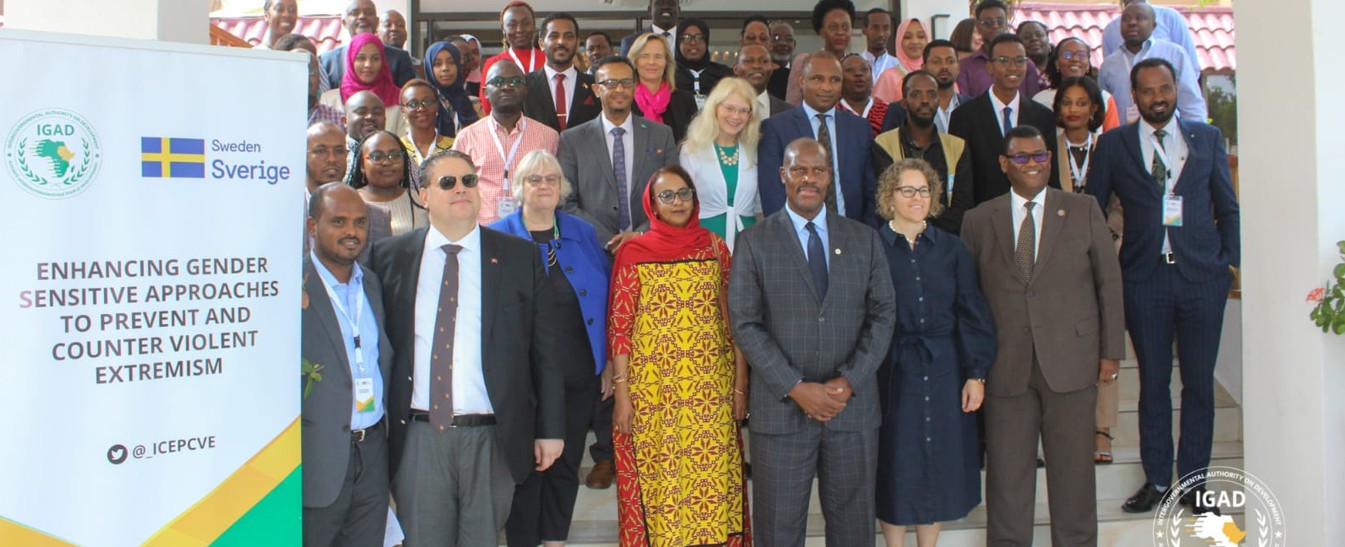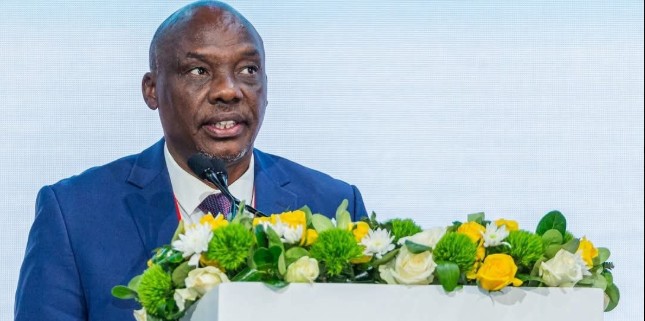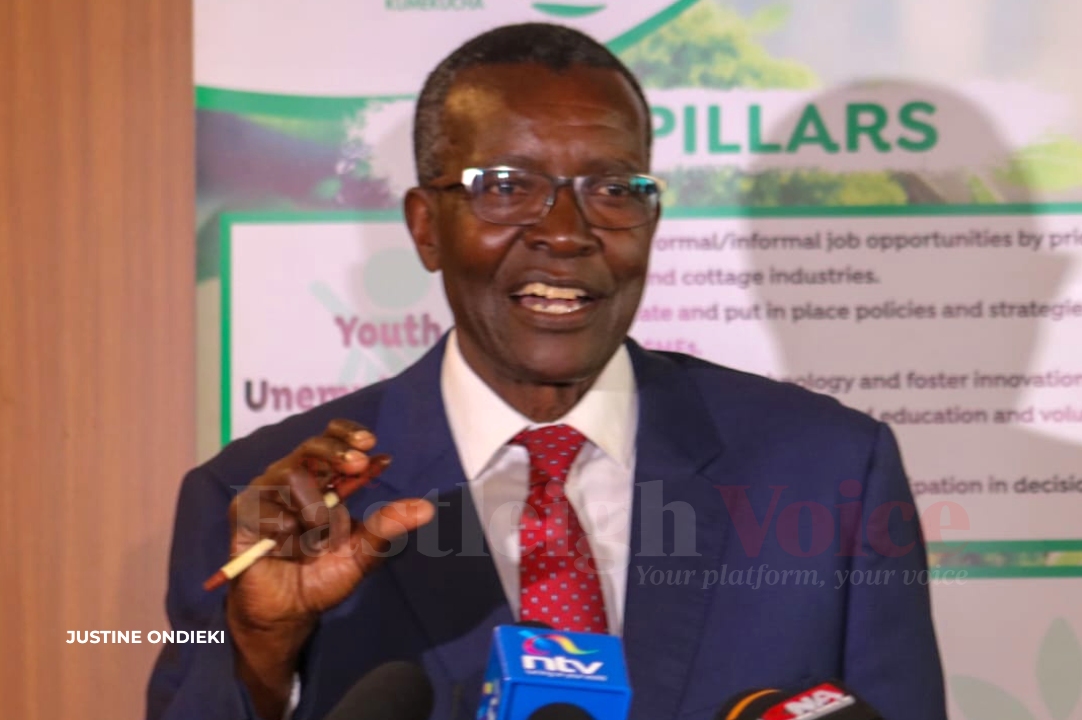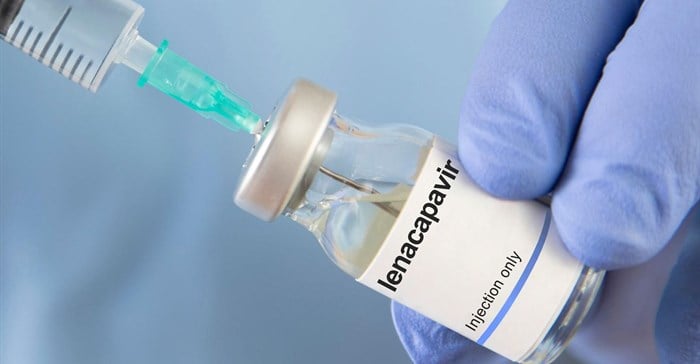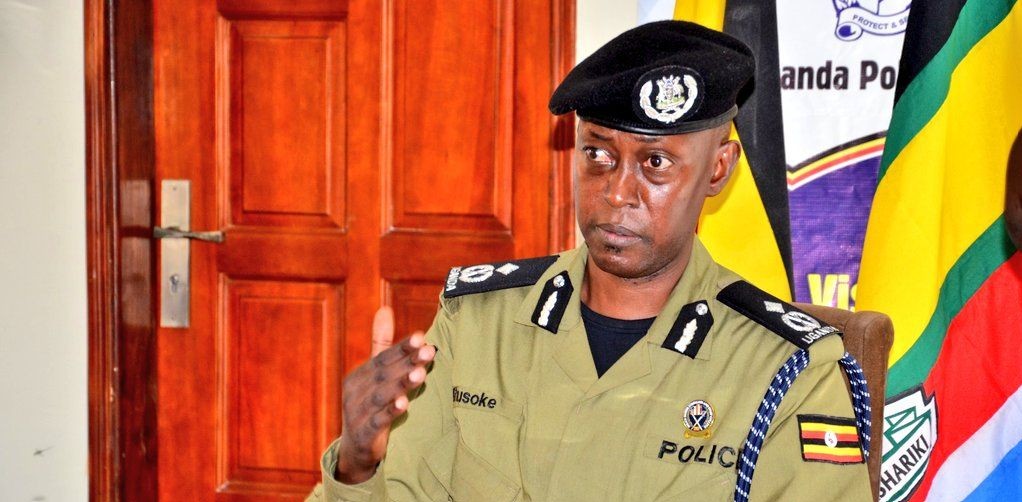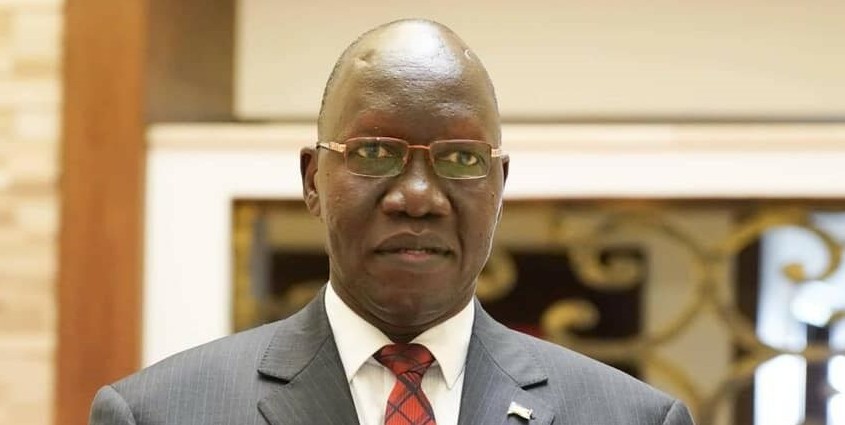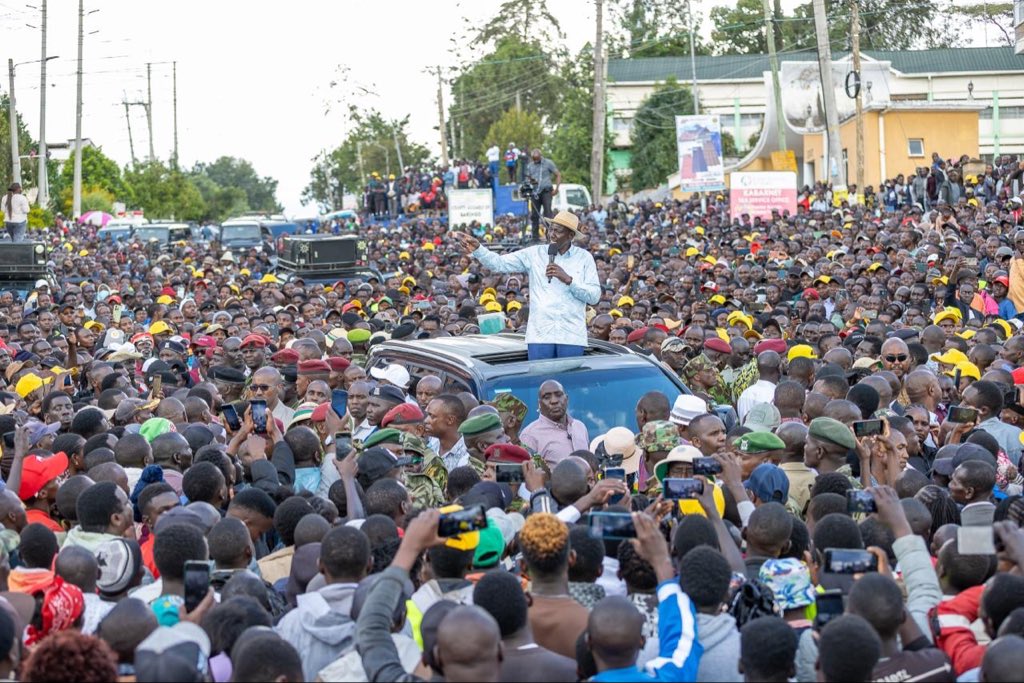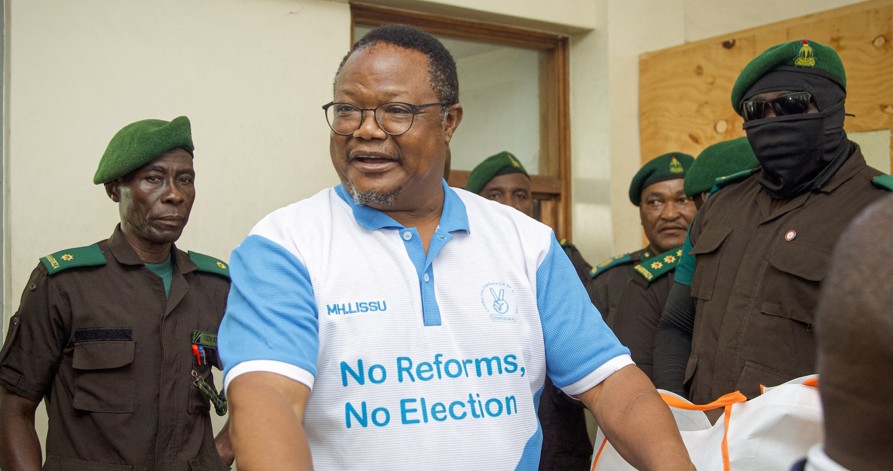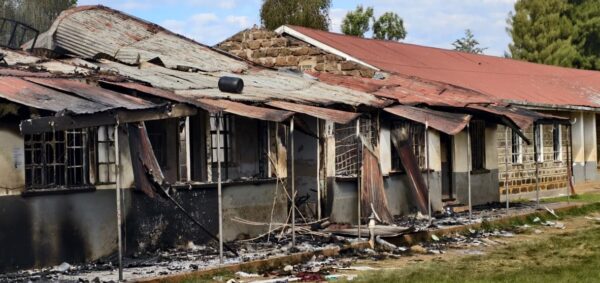Kenya to benefit from Sh258 billion WHO mpox fund
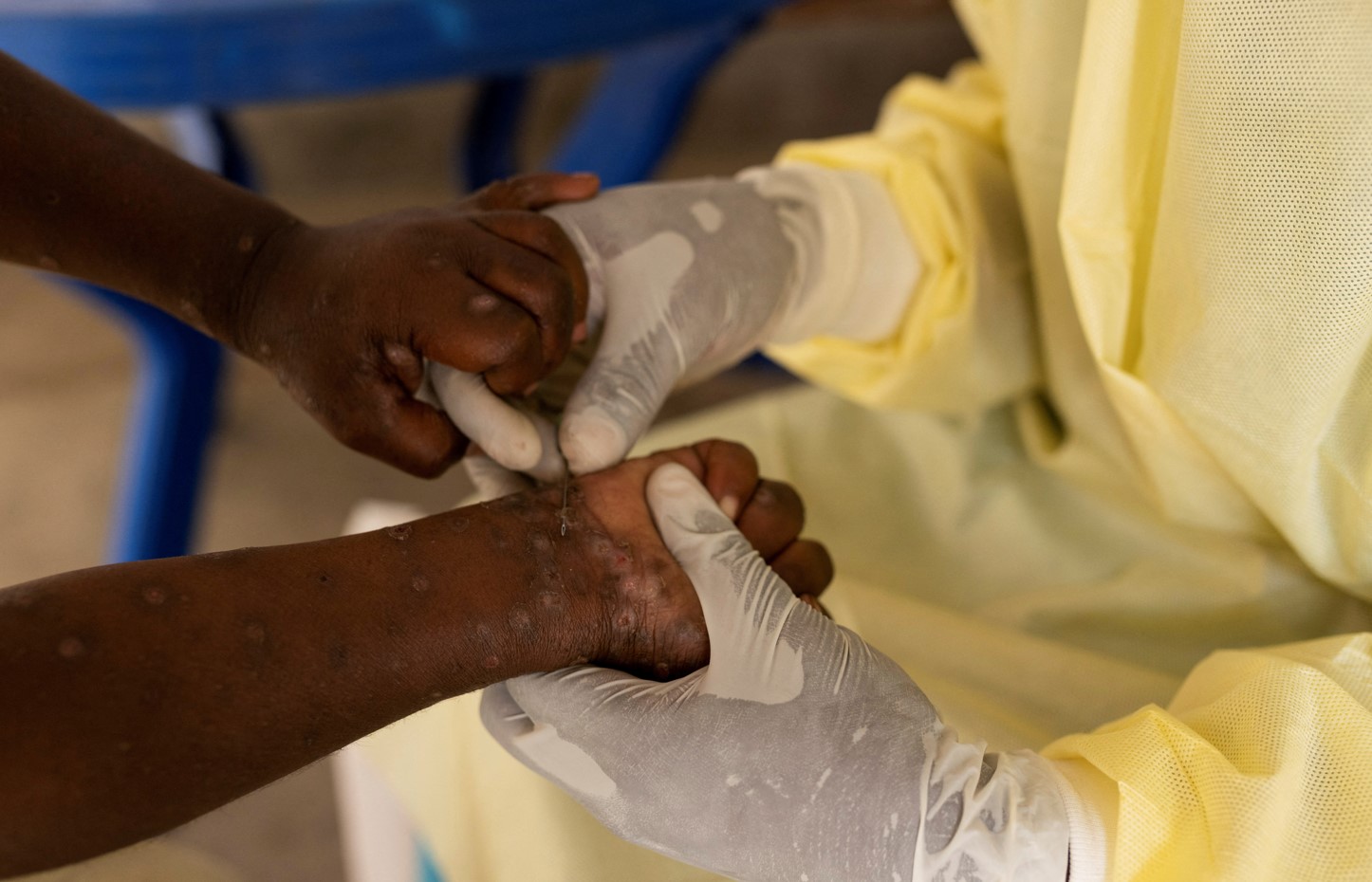
The WHO identified an urgent need for at least about Sh1.9 billion (USD15 million) to support surveillance, preparedness, and response efforts in Kenya.
Kenya is among the African countries set to benefit from a Sh258 billion (USD2 billion) fund allocated by the World Health Organisation (WHO) to tackle the mpox virus.
The WHO identified an urgent need for at least about Sh1.9 billion (USD15 million) to support surveillance, preparedness, and response efforts in Kenya.
More To Read
- Severe flooding affects over 960,000 in South Sudan: UN
- WHO says polio eradication still feasible despite Sh219 billion funding cuts
- Namibia declares mpox outbreak after confirmed case in Swakopmund
- WHO says DRC could declare end of Ebola outbreak by December
- Last Ebola patient discharged as WHO starts countdown to end DRC outbreak
- WHO raises alarm as antibiotic resistance threatens global health gains
On Wednesday, the WHO declared the ongoing Mpox outbreak in Africa a global health emergency, the highest level of alert under international health regulations.
This follows a similar declaration made by the African Centres for Disease Control and Prevention (CDC) on Tuesday.
A more dangerous strain of the virus, Clade Ib, is spreading rapidly in the Democratic Republic of Congo and has now reached at least four previously unaffected African countries. The potential for further international spread is a major concern, according to WHO Director-General Tedros Adhanom Ghebreyesus.
In response, The WHO has released $1.5 million (about Sh193.5 million) from its emergency fund and plans to release more in the coming days. The organisation is also calling for additional donations to fully fund the response plan.
“We have released about $1.5 million (about Sh193.5 million) from the WHO Contingency Fund for Emergencies and we plan to release more in the coming days. We are also appealing to donors to fund the rest of the response plan,” said WHO Director General Tedros Adhanom
The WHO’s declaration of a global health emergency highlights the increasing spread of Mpox in Africa, where over 14,000 cases and 524 deaths have been reported this year, exceeding last year’s figures.
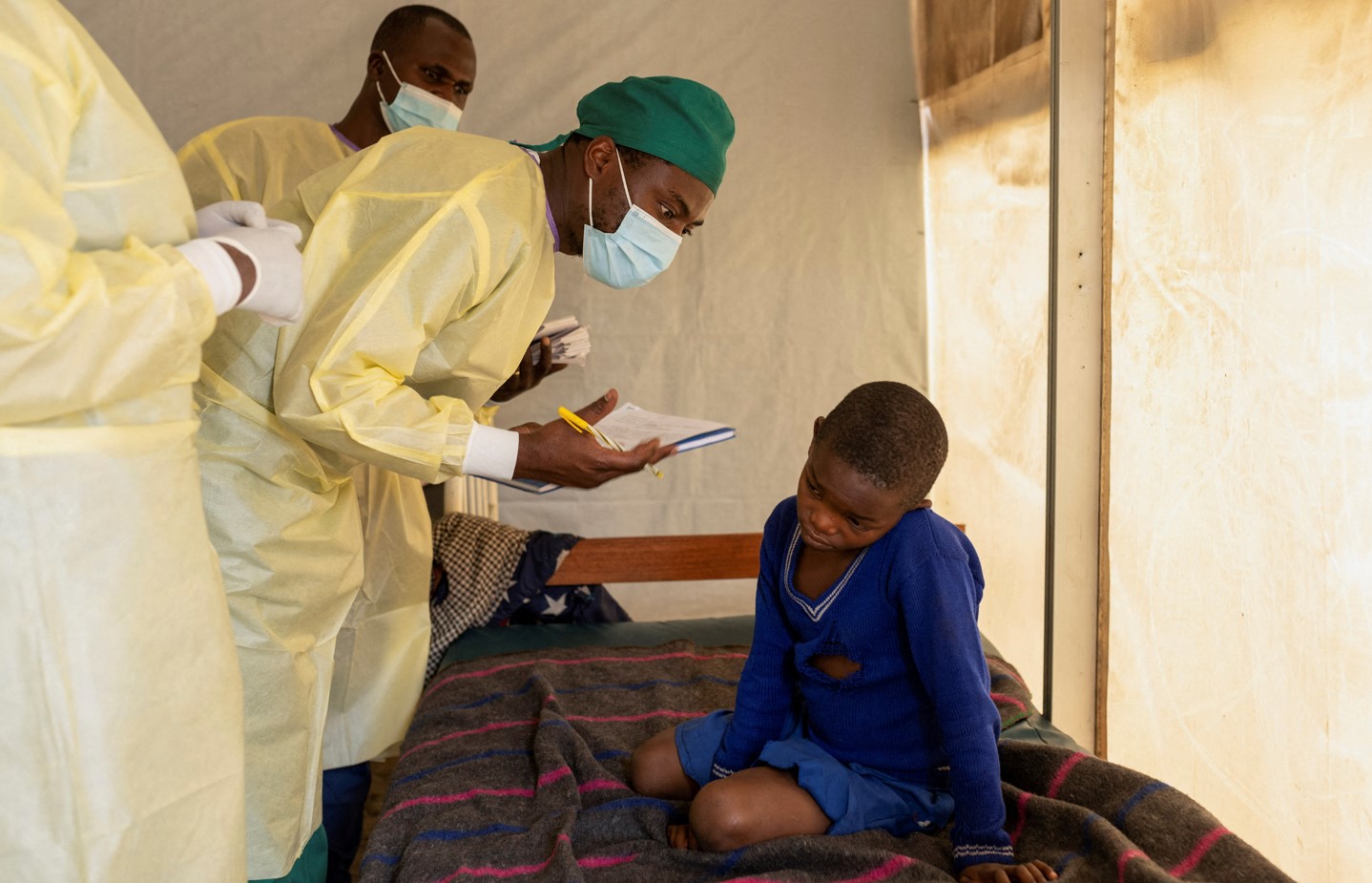 Dr. Tresor Wakilongo, verifies the evolution of skin lesions on the ear of Innocent, suffering from Mpox - an infectious disease caused by the monkeypox virus that sparks off a painful rash, enlarged lymph nodes and fever; at the treatment centre in Munigi, following Mpox cases in Nyiragongo territory near Goma, North Kivu province, Democratic Republic of the Congo July 19, 2024. (Photo: REUTERS/Arlette Bashizi/File Photo)
Dr. Tresor Wakilongo, verifies the evolution of skin lesions on the ear of Innocent, suffering from Mpox - an infectious disease caused by the monkeypox virus that sparks off a painful rash, enlarged lymph nodes and fever; at the treatment centre in Munigi, following Mpox cases in Nyiragongo territory near Goma, North Kivu province, Democratic Republic of the Congo July 19, 2024. (Photo: REUTERS/Arlette Bashizi/File Photo)Dr. Tresor Wakilongo, verifies the evolution of skin lesions on the ear of Innocent, suffering from Mpox - an infectious disease caused by the monkeypox virus that sparks off a painful rash, enlarged lymph nodes and fever; at the treatment centre in Munigi, following Mpox cases in Nyiragongo territory near Goma, North Kivu province, Democratic Republic of the Congo July 19, 2024. (Photo: REUTERS/Arlette Bashizi/File Photo)
Recently, over 100 cases of the deadly Clade 1b have been confirmed in Kenya, Burundi, Rwanda, and Uganda, countries that had not previously reported Mpox. Experts suspect the actual number of cases is higher due to untested cases.
Part of the funding will support countries in accessing and rolling out vaccines. Gavi, which assists with vaccine procurement for developing countries, will use the WHO’s emergency declaration to expedite the purchase and approval of Mpox vaccines.
Gavi is also working to establish a global stockpile of Mpox vaccines by 2026.
In Kenya, the first confirmed case was identified on July 29 at the Taita Taveta border post. The patient had travelled from Kampala to Mombasa and was headed to Rwanda via Tanzania.
Following this case, the Ministry of Health held a crisis meeting to develop strategies to prevent further outbreaks, including rapid testing, community engagement, infection control, and comprehensive case management.
Following the confirmation of the mpox case in Kenya, the Ministry of Health has undertaken various response measures, including contact tracing and enhancing surveillance. This involves tracing all close contacts of the patient along his travel itinerary in the country.
Other Topics To Read
On August 7, two new suspected cases of mpox were reported in Mombasa and Kilifi, bringing the total number of cases in Kenya to three. The Kilifi case was traced through contacts of the initial patient, although the Ministry of Health has not yet confirmed these additional cases. Experts, however, believe there could be more cases.
According to the Africa CDC, mpox has been reported in 10 African countries this year, with over 96 per cent of cases occurring in the DRC. The agency has noted a 160% increase in cases this year and a 19 per cent rise in deaths.
Top Stories Today
